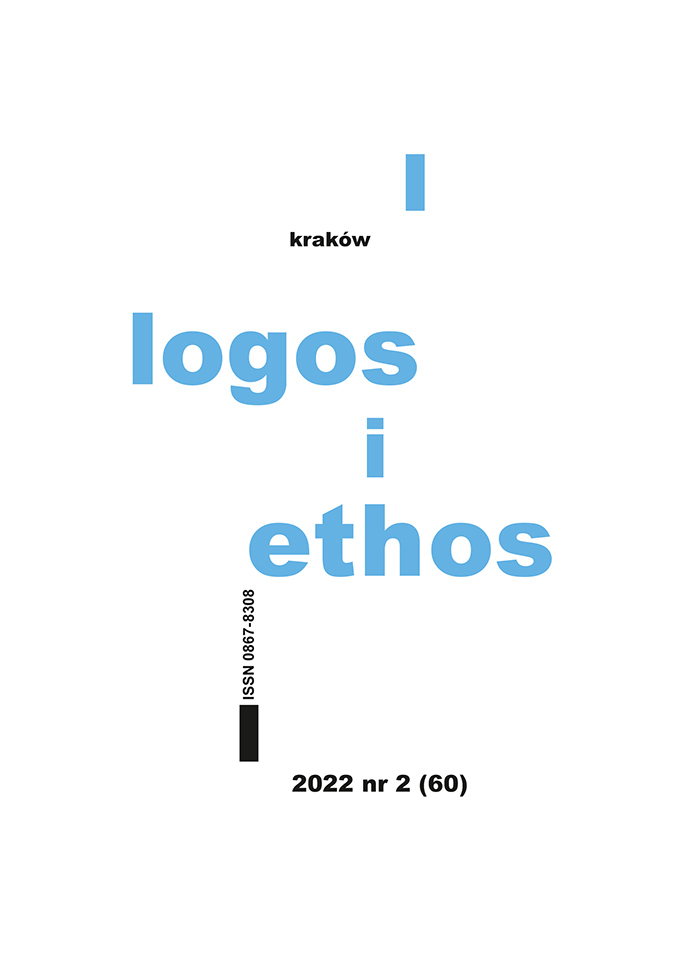Between Geographical Sameness and Historical Selfhood: Identity of a Historical Community in Paul Ricoeur’s Philosophy
DOI:
https://doi.org/10.15633/lie.60203Keywords:
identity, community, history, memory, Paul RicoeurAbstract
The issue of the identity of communities considered in a historical context brings many problems. The question of community identity is one of many challenges facing historians. It is subject to a multi-sided debate between extreme positions that seek a hard core of identity, and those that postulate a nomadic identity or deny it any meaning at all. Concerning the thought of Paul Ricoeur, the article will hypothesize that community identity can be considered between the poles of geographical sameness and historical selfhood, based on the model of demography and the model of collective memory. These models relate to the basic philosophical criteria of identity, and allow historians to refer to the multiplicity of aspects that fall within the geographical and historical criteria. By exploring these aspects in a web of interdependence, historians resemble narrators of a novel, who do not create a predictable plot but consider contradictions, twists, and conflicts. Thus, the work of historians acquires an ethical dimension, which is free from influence on the formation of the identity of the community to which they also belong.
References
Arendt H., The Human Condition, Chicago–London 1998.
Bugajewski M., Historiografia i czas. Paula Ricoeura teoria poznania historycznego, Poznań 2002.
Bugajewski M., Zagadka pamięci mimowolnej. Uwagi o teorii pamięci Paula Ricoeura, in: Między nauką a sztuką. Wokół problemów współczesnej historiografii, eds. E. Solska, P. Witka, M. Woźniak, Lublin 2017, p. 143–149.
Drwięga M., Odpowiedzialna wolność, Kraków 2020.
Hume D., A Treatise of Human Nature, Oxford 1960.
Jakubowski J., Skończoność egzystencjalna: studium nad filozofią Paula Ricoeura, Bydgoszcz 2017.
Leder A., Przyśniona rewolucja: ćwiczenia z logiki historycznej, Warszawa 2014.
Leichter D. J., Collective Identity and Collective Memory in the Philosophy of Paul Ricœur, “Études Ricoeuriennes” 3 (2012) no. 1, p. 113–131.
Locke J., An Essay Concerning Human Understanding, Oxford 1975.
Parfit D., Reasons and Persons, Oxford 1984.
Ricoeur P., Christianity and the Meaning of History, in: History and Truth, transl. C. A. Kelbley, Evanston 1965, p. 81–97.
Ricoeur P., Filozofia osoby, transl. M. Frankiewicz, Kraków 1992.
Ricoeur P., Hegel and Husserl on Intersubjectivity, in: From text to actions. Essays in hermeneutics, transl. K. Blamey, vol. 2, Evanston 1991, p. 227–245.
Ricoeur P., Memory, History, Forgetting, transl. K. Blamey, D. Pellauer, Chicago–London 2004.
Ricoeur P., Objectivity and Subjectivity in History, in: History and Truth, transl. C. A. Kelbley, Evanston 1965.
Ricoeur P., Oneself as Another, transl. K. Blamey, Chicago–London 1992.
Ricoeur P., The Course of Recognition, transl. D. Pellauer, Cambrige–London 2005.
Ricoeur P., Time and Narrative, transl. K. McLaughlin, D. Pellauer, vol. 1, Chicago–London 1984.
Ricoeur P., Time and Narrative, transl. K. McLaughlin, D. Pellauer, vol. 3, Chicago–London 1988.
Warmbier A., Tożsamość, narracja i hermeneutyka siebie. Paula Ricoeura filozofia człowieka, Kraków 2018.
Downloads
Published
Issue
Section
License

This work is licensed under a Creative Commons Attribution 4.0 International License.
Authors who publish with this journal agree to the following terms:
- Authors retain the copyright and full publishing rights without restrictions, and grant the journal right of first publication with the work simultaneously licensed under a Creative Commons Attribution 4.0 International License that allows others to share the work with an acknowledgement of the work's authorship and initial publication in this journal.
- Authors are able to enter into separate, additional contractual arrangements for the non-exclusive distribution of the journal's published version of the work (e.g., post it to an institutional repository or publish it in a book), with an acknowledgement of its initial publication in this journal.
- Authors are permitted and encouraged to post their work online (e.g., in institutional repositories or on their website) prior to and during the submission process, as it can lead to productive exchanges, as well as earlier and greater citation of published work (See The Effect of Open Access).

